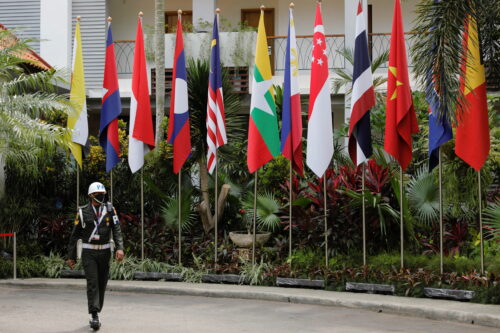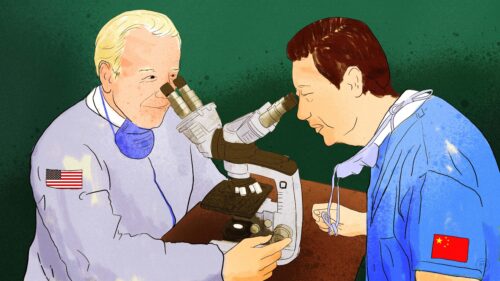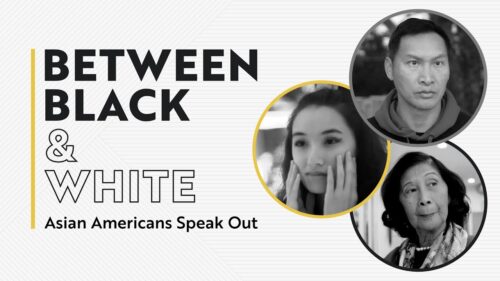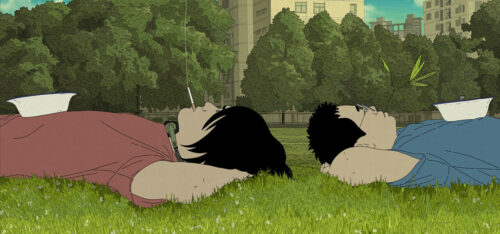Thicker than blood
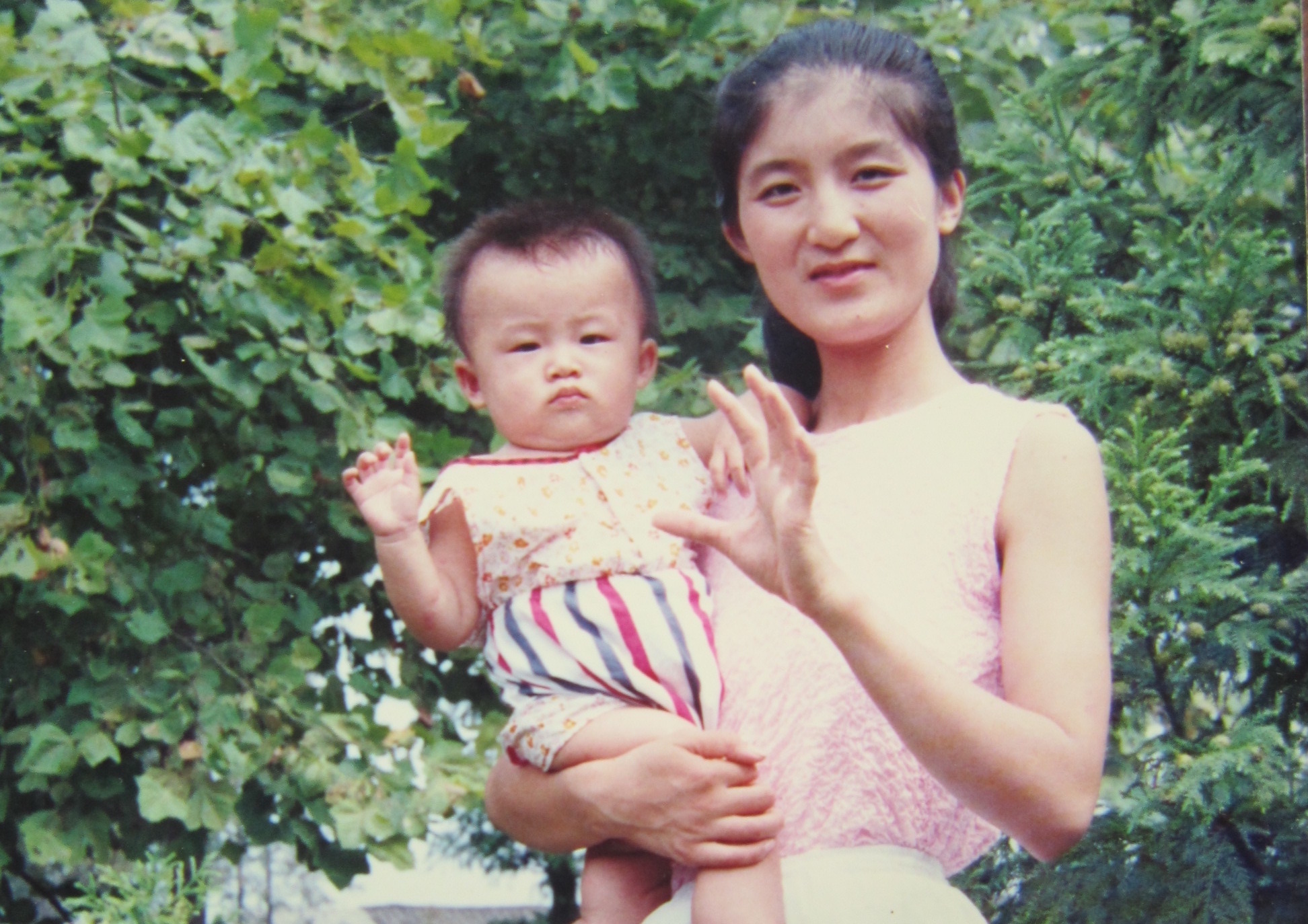
For a young Chinese woman, pursuing a career in the physical sciences implies defying societal expectations of a woman’s body, intellect, and her obligation to put family first. It may also mean disobeying a mother’s wishes.
Pictured: The author, held by her mother
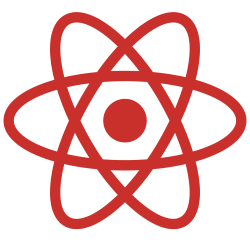
I had my first period when I was eleven and a half years old.
One of the first things I did after noticing the splash of crimson was to find my math exercise book. I looked up the problems marked with five asterisks, meaning the most difficult, and worked on them. I recited newly learned physics formulas in my head, and spelled out the longest English words I knew. I searched my young mind for any yardstick of mental prowess: my brain before menstruation, versus my brain after menstruation. I did not notice any difference.
A few evenings later, I was doing homework in the study when my mother called my name. “Yangyang, you have had it.” She held up the stained fabric over a pile of laundry. “It has come.”
I had not told her. I felt guilty that I had failed at delaying my body from crossing the gate of no return. My intellect, as that of any woman, would start dripping away after menarche, so I was told. Was the ad hoc IQ test I ran on myself reliable enough to prove my mother, and every other woman in my life, wrong?
It has been 18 years since my first spot of red. I left China after university for graduate school in the U.S., where I continue to live and work as a particle physicist. To my mother, the life and career I chose is my youthful rebellion against my biological destiny; my singlehood and childlessness are betrayals of my womanly obligation and her many sacrifices.
I am my mother’s missed period. Our bond is thicker than blood. The crimson tide tells a story of four generations of Chinese women, their loss and pain, birth and survival, pride and shame. It is the story of aging and coming of age, of societal subjugation of the female body and her desire to be free.

“I am from Qichun, the hometown of Li Shizhen 李时珍.” This is my mother’s standard way of describing her “old home,” or ancestral birthplace. The small town by the middle stretch of the Yangtze River is known for its production of scholars, and Li, a Ming Dynasty polymath, was its most prized son. His best-known work is the Compendium of Materia Medica (本草纲目 běncǎo gāngmù). Completed at the end of the 16th century, the exhaustive collection of herbal remedies became canon in traditional Chinese medicine, partly thanks to the Communist government’s effort to establish an alternative to “western” medicine for cultural and political purposes.
Traditional Chinese medicine sees the human body as a reflection of the cosmos, with heavenly objects and their movements mapping onto organs and physical functions. It also perceives the female body as fundamentally different from that of the male, the Yin to the Yang, the feminine fluid to the masculine Qi (气).
“The woman is of the Yin-type, with blood as the main principle,” Li echoed his predecessors in the chapter “The woman’s monthly waters.” “Her blood reflects up to the moon, and down to the ocean tides. The moon waxes and wanes. The tides rise and fall. The menses occur once a month, corresponding to these events.” The poetic imagery, however scientifically untrue, is followed by a graphic warning: “As the woman enters menses, the evil fluid is smelly and dirty. The gentleman stays far away, as the uncleanliness can damage the Yang and cause illness.”
Hippocrates of Kos construed that the female flesh had a different texture from that of the male, being “wet, soft, and spongy,” and menstruation rid the body of excess moisture and impurities. The ancient Greeks also believed that a wandering uterus from late menarche would lead to erratic behavior. The Greek word for “uterus” found its way into the English language, where it became “hysteria.” From the coast of the Mediterranean to the shores of the Yangtze, over millennia when women were denied access to political power or even basic literacy, the concept of their unique bodies was created in the figment of the patriarchal imagination disguised as science.
My mother never lived in Qichun, the place of her heritage and pride. It is her “old home,” because it’s where her father came from. My maternal great-grandfather ran a successful cotton mill in town, whose products were sold as far as Wuhan, the provincial capital of Hubei. Poor working conditions claimed the young entrepreneur’s life when his only child was three years old. Like most women in 1930s China, my great-grandmother had bound feet, but rare for her time, she could read. The young widow never remarried. She ran the household through some of the most tumultuous years in modern Chinese history, from the fighting of warlords to the Japanese invasion, and pushed her son to academic excellence. My grandfather’s career as a professor of economics would eventually take him to the city of Hefei in Anhui Province, where my mother was born and raised.
Inside an old family album at my grandparents’ place, there were black-and-white photos of my great-grandmother. It’s the only place I’ve met her outside the stories told at the dinner table. Dressed in a dark mandarin gown, she stood next to her son, her face stern, her features sharp.
“Do you know who your mother looks like? She resembles her nai-nai (奶奶, paternal grandmother),” my grandmother said to me, her eyes gleaming. “Nai-nai was a beauty. And she was tough.”

My earliest understanding of physical attractiveness was predicated on two facts: my mother was beautiful, and I was not. The cruel statement was presented to me as a gesture of love from the elders. A woman’s beauty is a bargain with the devil for which intellect must be traded. My homely self drew the longer straw at birth, so I was told, since excelling in school was the only pathway for personal advancement.
I started elementary school two years early. According to the adults in my life, a girl must get as far ahead as possible academically before she reached puberty, after which boys would take their predestined lead. What is puberty? No one explained it to me. My mother shaved my head bald every summer and kept it at inch-length year-round. There were no dresses or skirts in my wardrobe. Literature, classic or popular, that had depictions of romance was banned in my household. Any object that might be associated with femininity, let alone sexual awakening, must be stripped from my life so I could focus on my studies.
I knew my mother had a mysterious “old friend” who visited regularly but I never managed to meet. One evening she was scolding a girl friend of hers who dropped by: “Your daughter is even younger than mine, and you already told her about the old friend?”
“Children need to know. It’s not good if they do not know anything…” her friend’s voice trailed off.
My mother shook her head. “The more they know, the more distracted they become from their schoolwork.”
“That’s why her daughter’s grades are bad,” my mother said to me after the friend left, knowing I had been eavesdropping in our tiny apartment.
The first time I heard my mother speak about menstruation was in the early spring of 2000. It had been a particularly long and cold winter. Chill lingered in the air long after red couplets from the Lunar New Year had faded into the shade of old bloodstains. With her back against the living room wall, my mother wailed, “I have my period!” As her body slowly slumped to the floor, her cry took a higher pitch, “No one will take care of me!”
My father had passed away suddenly and unexpectedly a few weeks prior. If Hippocrates was right and menstrual blood was the body’s way of expelling pollutants, could it also wash out grief? If the physical body is a microcosm of the universe as told in the Inner Canon of the Yellow Emperor (黄帝内经 huángdì nèijīng), how might the womb respond to the cosmic injustice of a young death?
“She has her period, and it is really heavy,” my grandmother explained to a concerned visitor. Her own mother died shortly after giving birth to her, as had an estimated 10 to 15 out of every thousand Chinese women in the 1940s. Separated from her father and raised by her maternal grandmother, the young orphan lived through the wars and political upheaval, went to school, and worked a string of jobs from factory worker to kindergarten teacher. During the Great Famine at the end of the 1950s, some 40 million Chinese people starved to death, and another 40 million were never born. As a result of severe malnutrition, my grandmother stopped menstruating during the hardest days. The first blood after surviving a famine was a harvest in itself. My mother was born a few years later, in 1964.
I was 10 years old when the task of raising me fell to my mother and her alone. Always careful about what I ate, she enforced an even stricter diet. Certain types of animal products must be avoided because they contained growth hormones. Some seeds and plants could only be consumed in small quantities because they stimulated the sexual organs, per traditional Chinese medicine. In addition to her belief that the flow of the womb drained the brain, my mother dreaded the approach of womanhood for her daughter, a perilous world filled with lurking eyes and wandering hands.
“When you get older and take the bus by yourself, you need to watch out for the hooligans,” my mother warned me, recounting her many encounters with unwanted advancement.
“But you are beautiful,” I responded. “And I am not.”

The moon waxed and waned, and the tide inside my body arrived at its time. My mother took me to her drawer, handed me a pad, and taught me how to use it. The folded square had a light yellow cover with the brand name printed in repeat: “Clean and beautiful.”
The sanitary napkin as we use it today traces its origin to World War I, when the material Cellucotton, made from wood pulp, was found to be cheaper yet five times more absorbent than cotton. The same American company that sold Cellucotton bandages to the frontlines in Europe produced the first box of sanitary pads for the U.S. market. It was labeled “Kotex.” The woman is warrior, her body a battlefield. Despite all the alarming consequences of menarche my mother had warned me about, I held my first pad as a badge of honor. I too had arrived.
I never knew what it was like to speak about, or hide, one’s period from her father. Bedsheets and sofa covers got stained regularly at our place. My single mother rarely had the time or energy to wash them immediately, and there was no money to replace them, so the stains would remain, as a constant reminder that there were no men in the household.
The only item my mother cleaned with a vengeance was our underwear. She rinsed them by hand, and she boiled them in water. The designated utensil was a large porcelain washbasin with a pair of mandarin ducks printed on the bottom next to the character for “double happiness.” The basin was a wedding gift for her and my father, typical of their time.
“Only boiling water can kill all the germs,” my mother explained her peculiar method. “That place must be kept clean, otherwise you will get diseases, and people will think you are a prostitute.”
In traditional Chinese medicine, the womb is the most important organ of the female body. The crimson palace is the gate of life, the red sea from whose channels all blood will flow. In the Complete Dictionary of Effective Prescriptions for Women, written by the Song-dynasty physician Chen Ziming 陈自明 in 1237, “regulating the menses” was “the first necessity” in women’s healthcare. The second category was treating the “multitudinous ailments” that might arise due to unregulated menses, with the third and final mission being “seeking descendants.”
The reduction of the female body to a reproductive vessel is enforced by restrictions on a woman’s agency, where her sexual freedom not only violates the moral codes of society, but also endangers her primary purpose of existence: to produce offspring for her husband. Like her widowed grandmother whose beauty she inherited, my mother never let another man into her life. The excessive cleaning of underwear was not only a health measure. It was her chastity ritual.
I had not really understood the mechanism of reproduction at the time. My middle school biology teacher, a young man, skipped the chapter in class. At some point the school invited a female gynecologist from the local hospital for a public health lecture. “A week or so after the menstrual cycle ends, the body is more energetic,” she said. I calculated the days in my head, then turned to my classmate and whispered, “I think I will do well on the next midterm.”

I was admitted to a science experimental program for high school. Out of the 40 students selected from a province with more than 50 million people, fewer than a quarter were girls.
As we trained for the science olympiads, I chose physics and math as my main focus. My mother was less than approving. “What about biology? It’s easier for girls to study biology.
“Your English is so good. Maybe you can go to a foreign language school.
“In physics and math you have to compete with all the boys.”
I had no particular interest in biology and never wanted to pursue English as a profession. The simple elegance in the fundamental laws of nature brought me peace and clarity like no other.
“When I was in my second year of middle school, I got full marks in a physics exam, plus 10 bonus points,” my mother repeated this decades-old anecdote. “My grades were very good, but I never went to university. Your grandmother did not allow me to.”
My mother is the oldest of three children and the only daughter. Both of her brothers went to university. One has a doctorate.
“Why do you need grandma’s permission to go to university?” I asked.
“You do not understand. We argue, but in the end I always listen to her.”
I skipped the final year of high school to begin undergraduate studies at the University of Science and Technology of China (USTC), where I majored in physics. Since university admission resumed in 1977 after the Cultural Revolution, the male to female student ratio at USTC has consistently been a stark five to one school-wide. The disparity is much more acute in the physical sciences and engineering disciplines.
“Now that you are at university, you must keep your eyes open for good guys and snatch one as soon as you can,” my mother emphasized each time I visited home from university. According to her, what she used to consider “dangerous distractions” should now be my primary focus. For the woman, the purpose of an elite education was first and foremost access to elite men.
By the end of my sophomore year at USTC, I had fallen in love with particle physics and decided I wanted to pursue a Ph.D. on the subject in the U.S. My mother’s views on the profession had not changed. “I heard statistics is easier for girls.
“You can still study biology.
“It will be very difficult for you to find a husband abroad.
“The auntie you know said her daughter came back to China. Finding a husband is more important than earning a degree.”
Despite her doubts and efforts at dissuasion, my mother paid the exorbitant fees for my standardized tests and graduate school applications. “It is money from your dowry!” her friends said to me, only half-jokingly. I knew it was my mother’s life’s savings.
The spring of 2009 was a hectic blur. I was graduating from USTC and had accepted an offer from the University of Chicago for my Ph.D. in physics. “It is the alma mater of C. N. Yang and T. D. Lee, the university with the most Nobel Laureates in the world!” my mother told her friends, one of the first times in my life she had bragged about me.
My singlehood remained her perpetual worry. “Is there anyone you are interested in who is also going to study in the U.S.?” she asked. Disappointed by my answer, she was nonetheless unrelenting. “Keep your eyes open for good guys among the Chinese students there.”
Using a recipe from her mother, my mother cooked a fish stew with papaya every day during my final weeks in China. “It will give you fuller breasts.” She worried about the sanitary products on the other side of the ocean. “Foreign women use tampons. You cannot use tampons. It might damage…the membrane.”
“For a woman, her virginity is the most precious possession,” my mother pressed this point on her departing daughter. “Your father would have agreed.
“If you lost your virginity before marriage, you can win the Nobel Prize in physics and still be worthless.
“If you lost your virginity before marriage, I will disown you.”

It has been almost a decade since I left the land of my birth. My mother is still trying to persuade me to leave physics for a more “feminine” profession. For the first few years she would suggest eligible bachelors she knew, whom I might consider going back to China to marry. At some point her effort at matchmaking stopped. I have become too old and too educated for her circle, and our conversations take a more somber note.
“You do not want to end up like me,” my mother says over the phone. “I no longer have my period.”
But menopause, like menarche, is natural.
“[My friend] is older than me, and she still has her period.”
The start of menopause, like menarche, differs per individual. At my mother’s age, it is normal.
“If a woman does not have a man, the blood inside her no longer flows.”
The landscape of China is dotted with cliffs and rocks that go by a common name: “In waiting for her husband” (望夫 wàng fū). Legend has it that in ancient times, there was a woman who waited for her departed man until her body turned into stone. One of the sites is by the upper stretch of the Yangtze River. The same waters that pass the hardened figure of a woman also carried my great-grandfather’s merchandise from Qichun to Wuhan. Did it also hold my great-grandmother’s tears?
“But could the heart really turn into stone?…Instead of standing over a cliff, in exhibition for a thousand years, it is better to cry on the shoulder of a loved one, for a single night,” the contemporary Chinese poet Shu Ting 舒婷 wrote in the poem “Goddess Peak.” Notable for including concepts of gender equality and women’s liberation in her work, Shu Ting was popular among Chinese students and intellectuals in the 1980s. Many cycles of the moon and circles around the sun ago, at the dinner table, my father recalled one of his first encounters with my mother. “Your mother asked me, have you read Shu Ting’s ‘To the Oak Tree’?”
When we moved out of the old apartment after my father’s death, I found a pocket notebook among the hastily packed boxes. On the yellowed pages, in my mother’s handwriting, there was “To the Oak Tree”: “If I love you…I must become a red cotton tree, standing next to you in your image. Our roots tangle underground. Our leaves touch in the clouds…We are separate individuals, forever connected. This is what great love is, the definition of strength and devotion. Love, love for your body, and the land where you stand.”

Yangyang Cheng and the Science and China Column will return on the final Wednesday of every month. Last month:
